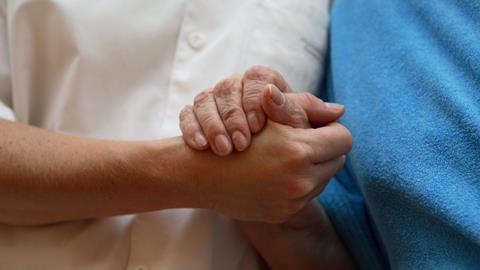The NHS’s half million support staff can encourage the sort of positive attitude among patients that promotes recovery. Claire Read finds out more
The bedside locker is a constant on an NHS ward, but perhaps only a domestic could have realised that it can be a sign of whether a patient needs a little extra attention.
In association with 
During a session of the Serco Cares programme – a training course which aims to identify and reinforce the value of support staff – one domestic shared her special method for assessing the contents of lockers.
Explains Stephanie Gray-Roberts, director of clinical governance at Serco: “If there were lots of get well cards on it, she would think that patient was probably quite well supported, and didn’t necessarily need any extra support from her.
“But for the bedside lockers that were empty, she thought that patient was probably not as well supported, and she would make sure she gave those patients extra attention.
“So she’d go out of her way to bring them the previous day’s newspaper, or talk to them about what had been in the news, because she thought that they were unlikely to have support.”
Contribution to better patient care
It’s a perfect example of how the NHS’s half million support staff can make a contribution to better patient care, and to encouraging the sort of positive attitude that promotes recovery. Says Ms Gray-Roberts: “I wonder how many clinicians have ever thought like that in that way.”
We’ve now made sure there’s money available so that each of the wards can have a set of birthday cards that are replaced when they are used
It is far from the only example of excellent practice to have emerged from the Serco Cares programme, which is set to be rolled out across all the organisation’s contracts following a successful launch in Wishaw Hospital.
Andrew O’Donnell, who is the Serco contract manager at Wishaw, offers another. “One of our domestic staff on the ward actually used to purchase birthday cards for patients,” he says.
“If she found somebody on the ward had a birthday, she would get a card, write in it and talk to the clinical staff, who would give it to the patient. That was something that was picked up during the training, and straight away other wards started to take it on.”
Adds Ms Gray-Roberts: “We’ve now made sure there’s money available so that each of the wards can have a set of birthday cards that are replaced when they are used.”
She continues: “We’ve got 5,800 staff, and if only 10 per cent had ideas similar to those, imagine what a difference it would make. That’s why I think this programme could be such a powerful change.”
Topics
From 'I'm only a porter' to 'I'm a porter': Supporting non-clinical staff to recognise their value

Support and train non-clinical staff for better care
- 1
- 2
 Currently
reading
Currently
reading
When support staff go the extra mile to assist patients































No comments yet